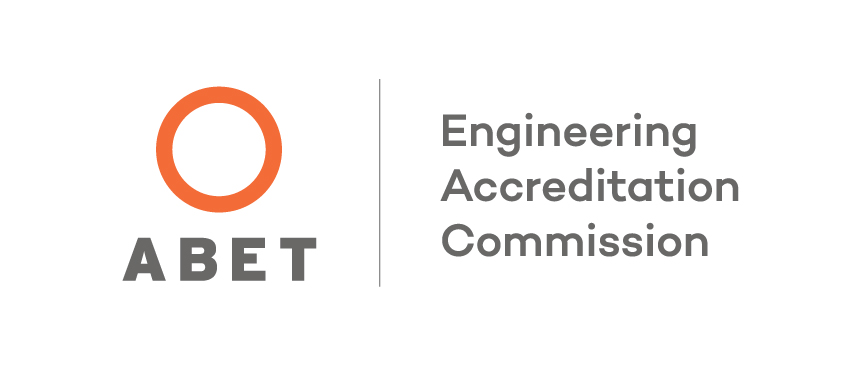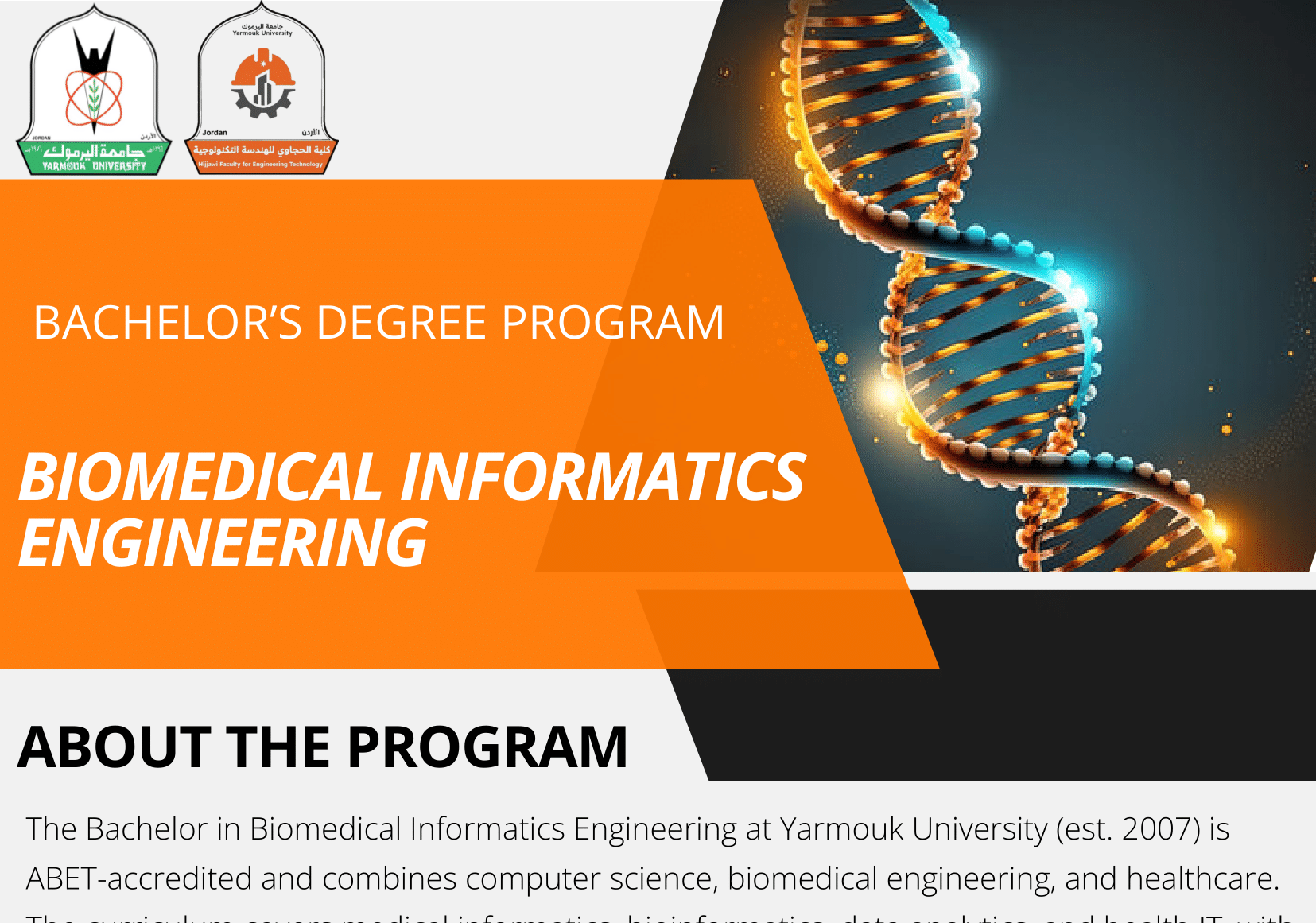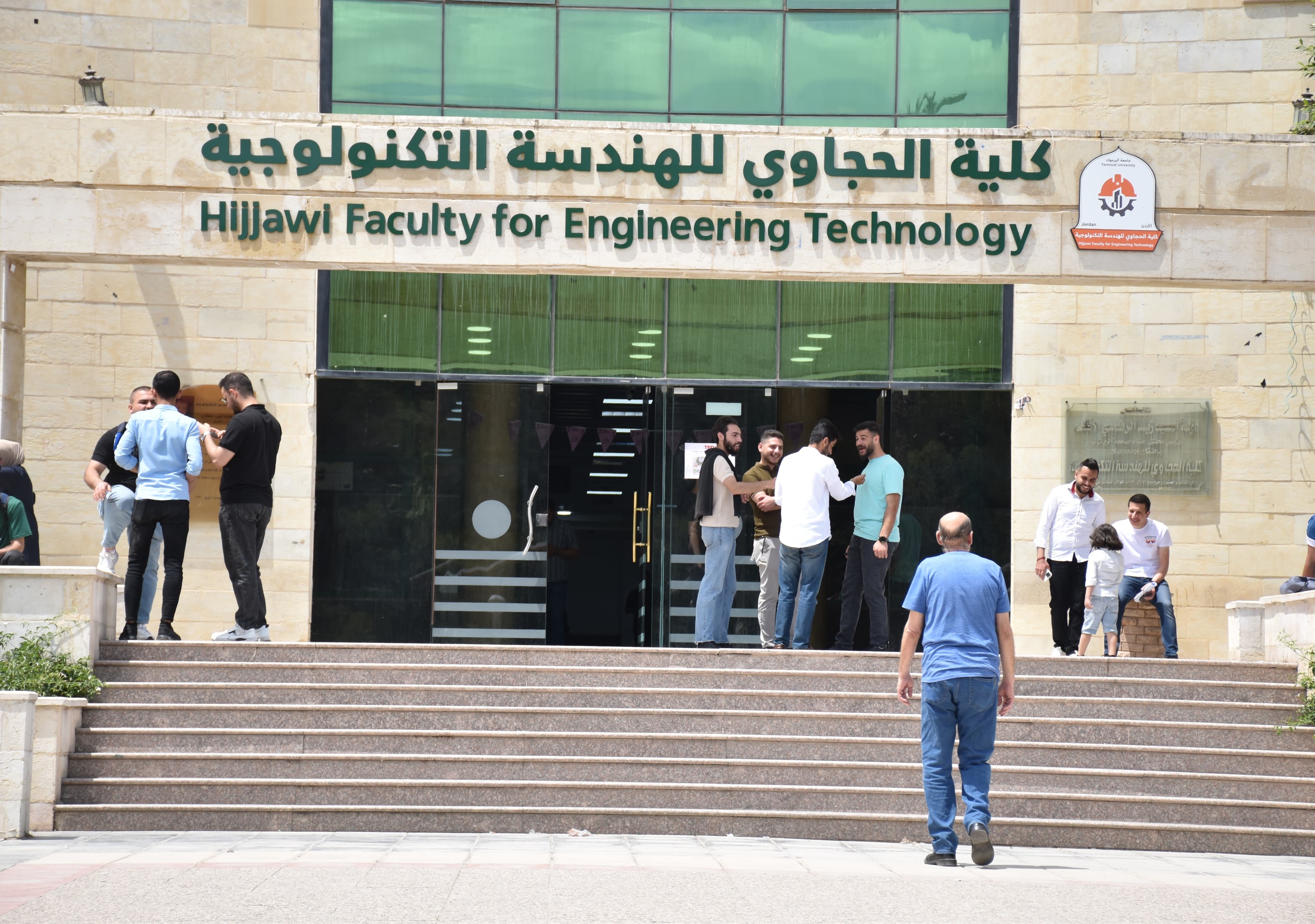Program Department and Chair
For inquiries or further information, please contact:
Email: medical.dept@yu.edu.jo
Phone: +962 2 721 1111 ext. 4551
Eng. Sami Almashaqbeh
Chair, Biomedical Systems and Informatics Engineering Department
Instructor, Biomedical Systems Engineering
sami.m@yu.edu.jo
+962 2 721 1111 ext. 4551
About the Program
The Bachelor in Biomedical Informatics Engineering degree program at the Hijjawi Faculty for Engineering Technology, Yarmouk University, was established in 2007 with the support of the European Union / Tempus Program. The program is accredited by the Engineering Accreditation Commission of ABET, https://www.abet.org, under the General Criteria and the Bioengineering, Biomedical Engineering Program Criteria.
Developed through collaboration with European and Jordanian academic institutions, the curriculum integrates computer science, biomedical engineering, and healthcare systems to prepare students for careers at the intersection of technology and medicine. The program emphasizes interdisciplinary learning by combining knowledge from biology, medicine, data science, and software engineering.
Coursework includes medical informatics, bioinformatics, health information systems, medical data analytics, machine learning, signal and image processing, and electronic health records. Students complete a two-term graduation project and a mandatory four-month full-time field training (six credit hours) in hospitals, research labs, or health tech companies.
Graduates are well-prepared for roles in digital health, biomedical data analysis, healthcare IT, and research, as well as for pursuing advanced degrees in related fields.
Program Educational Objectives (PEOs)
Within a few years after graduation:
Enrollment Statistics
Study Plan
The study plan of the Bachelor in Biomedical Informatics Engineering degree program consists of 167 credit hours, covering foundational and specialized topics in medical informatics, bioinformatics, health information systems, software development, medical data analytics, machine learning, signal and image processing, and systems biology. The curriculum integrates theoretical coursework with applied training to ensure students develop both technical knowledge and real-world skills.
Students participate in hands-on laboratory work in areas such as programming, data science, medical imaging, and health information technologies. The program also includes four career development courses to enhance professional and communication skills throughout the academic journey.
A two-term graduation project challenges students to develop practical solutions to biomedical informatics problems, while a mandatory four-month full-time field training (six credit hours) in hospitals, research centers, or health tech firms provides essential industry exposure.
Students holding recognized international certifications in relevant fields may waive up to one elective course. Foreign language courses are included to improve global employability and communication in international healthcare and research settings.
This comprehensive curriculum prepares graduates to succeed in the fast-growing field of biomedical informatics, bridging the gap between healthcare and information technology.
Career Opportunities
-
Hospitals and healthcare institutions
-
Health informatics and electronic health record (EHR) companies
-
Biomedical and clinical research organizations
-
Bioinformatics firms and pharmaceutical companies
-
Public health and epidemiological agencies
-
Academic and healthcare IT departments
Industrial Advisory Board
Awesome Engineering Technology Program
Learn more about the Bachelor in Biomedical Informatics Engineering degree program by exploring the materials provided here — and discover how it integrates healthcare, data science, and technology to prepare you for impactful roles in the digital health era.





